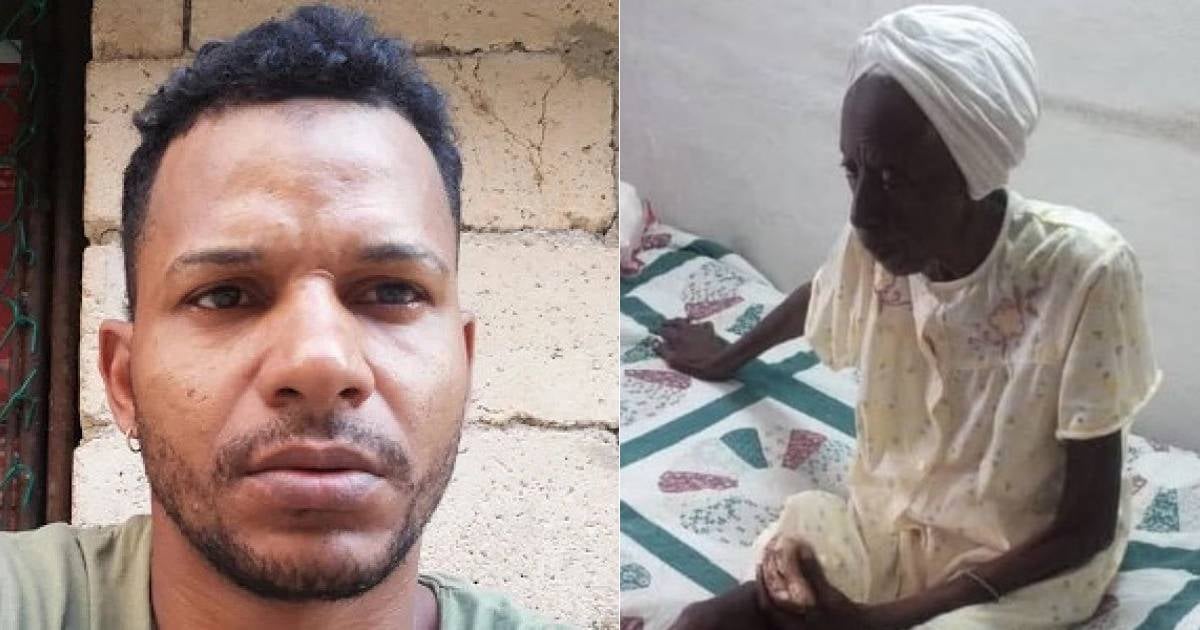In a stark example of political punishment overriding basic human compassion, Maykel Castillo Pérez, known artistically as Maykel Osorbo, has been denied the chance to bid farewell to his deceased grandmother. Despite his request to attend the funeral under supervision, the regime refused his plea.
Osorbo's grandmother, Hilda Rojas Mora, passed away on Monday at the age of 85 from natural causes. For Osorbo, she was more than just a grandmother; she was his surrogate mother after he found himself nearly alone at the age of ten. Yet, even this profound connection, along with the appeals from family members, failed to sway the authorities.
From 6 PM, friends and relatives gathered at the Marcos Abreu funeral home, located on Zanja Street in Centro Havana, to mourn the loss of the elderly woman. However, the absence of her grandson, who has been imprisoned for over four years, was deeply felt. Osorbo is held hundreds of miles away in the 5 y Medio prison in Pinar del Río.
The family pleaded earnestly with the State Security and prison officials, expressing, "The burial is set for 8:50 AM, but we are willing to delay it. Our only desire is for my cousin to see her one last time and say goodbye."
This isn't the first time such a denial has occurred. Osorbo was similarly refused permission to attend the funeral of his adoptive grandfather, who had given him his last name.
The confirmation of this refusal was made public by musician and activist Yotuel Romero, who took to social media to denounce the situation. "The Cuban dictatorship has denied Maykel Osorbo the right to say goodbye to his grandmother, who raised him and was his rock. She has passed... and Maykel, unjustly imprisoned for no reason, is not allowed even a final farewell."
Yotuel drew parallels to the past, comparing the incident to the regime's treatment of Celia Cruz, who was also denied a farewell decades ago. "The pain of forced separation becomes an eternal punishment. Repression not only imprisons bodies, but also devastates souls."
He also announced plans to escalate the issue to international bodies like Amnesty International (AI), should these violations continue. "This is not about politics; this is about humanity. With this action, you show yourselves to be inhuman and criminal. You cannot play with Maykel. You cannot play with a grandson's grief."
Maykel Osorbo, co-writer of the iconic anthem "Patria y Vida," is serving a nine-year prison sentence for his activism and for challenging the regime's narrative. His plight has been highlighted as a blatant case of political repression and human rights abuse.
International organizations have labeled him a prisoner of conscience, and his imprisonment remains a painful reminder of the ongoing civil rights struggles in Cuban society.
Key Questions about Maykel Osorbo's Situation
Why was Maykel Osorbo denied permission to attend his grandmother's funeral?
The Cuban regime refused Maykel Osorbo's request to attend his grandmother's funeral as a form of political punishment, ignoring humanitarian considerations.
What impact has Maykel Osorbo's imprisonment had on Cuban society?
Maykel Osorbo's imprisonment is seen as a clear example of political repression and human rights violations, and it continues to highlight the struggles for civil rights within Cuban society.
Who is advocating for Maykel Osorbo's rights internationally?
Organizations like Amnesty International and activists such as Yotuel Romero are advocating for Maykel Osorbo's rights and bringing attention to his case on an international level.
